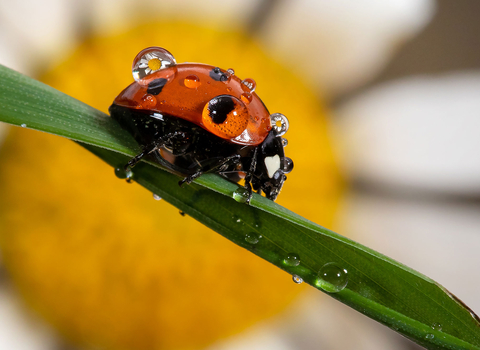While world leaders have come together at COP26 in Glasgow to reach an agreement on how to tackle climate change on a global scale, Surrey Wildlife Trust is urging people in Surrey to work together with their neighbours to take urgent local action in their streets for the climate crisis through gardening for wildlife.
Whilst we need to stop burning fossil fuels and reduce greenhouse gas emissions, we must also let nature help tackle the climate crisis and adapt to its impacts. By restoring and connecting gardens, streets and community green spaces for nature, these can store carbon, provide clean air and water, protect us from flooding, extreme weather and even provide healthy, home grown food, as well as providing much needed refuges for wildlife.
There are 20,000 hectares of gardens in Surrey that cover 12 per cent of the county, an area greater than all of Surrey’s nature reserves put together. So gardens are a vital piece of the jigsaw in tackling climate change locally. These gardens, if managed for wildlife, also protect the survival of a huge range of species including our precious house martins, hedgehogs, stag beetles, brimstone butterflies and over two hundred species of bee.
Claire Gibbs, principal ecologist at Surrey Wildlife Trust Ecology Services and Gardeners World Magazine Garden of the Year 2021 Judge, said: ‘Rather than using hard landscaping, we need to think about natural wildlife gardening features to let nature mitigate climate change. Removing concrete paving will help rain water soak away and a pond will store water, rather than contributing to overflowing storm drains and flash floods. Planting a native hedge, rather than building a wall or fence will provide an amazing habitat for wildlife as well as absorbing carbon from the atmosphere.
Rather than burning fallen leaves this autumn why not make a leaf pile which may be used by hedgehogs to nest in. Always buy peat free compost to help prevent the destruction of peat bogs, which are vital carbon stores. Often we think of climate change and wildlife loss as two separate global issues that we are powerless to help. But we can make a difference by thinking globally and acting locally; by creating space for nature in our gardens we are providing one solution to both problems.’


